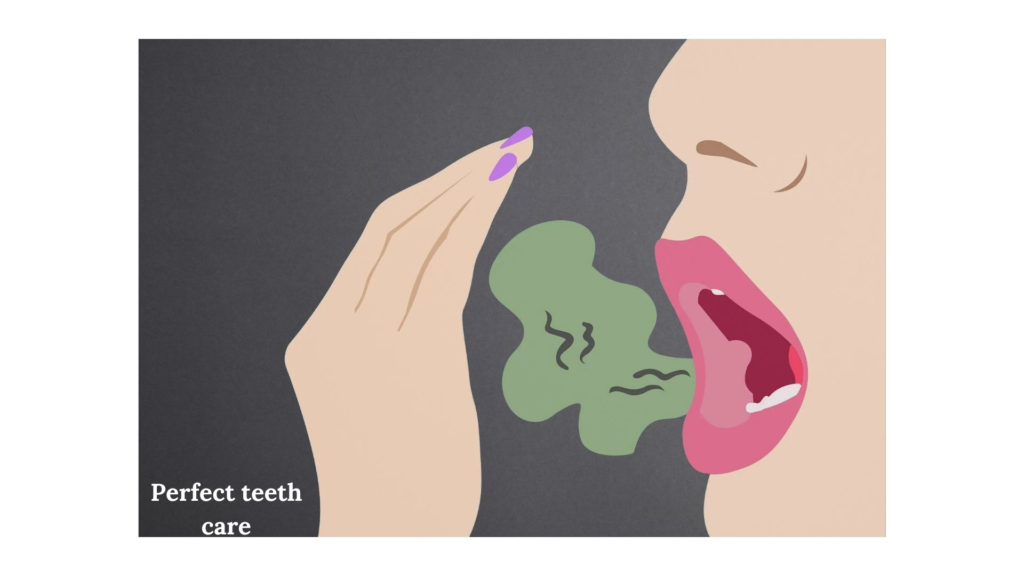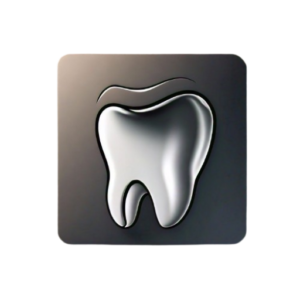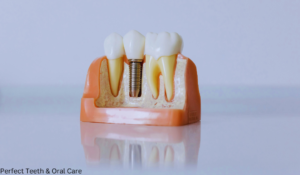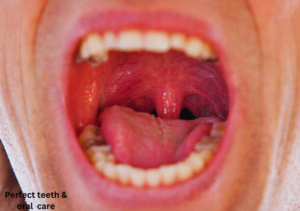What is Bad Breath (Halitosis)?
Halitosis, the medical term for bad breath, is something everyone gets from time to time. Whether it’s after eating garlic, onions, or other strong foods, the unpleasant smell often goes away quickly. But if it doesn’t, it might point to a chronic health issue or an oral condition. This isn’t just about your mouth—it can be a symptom of many different conditions, sometimes serving as a warning message from your body. The key is finding the root cause and treating the issue. This first step could reveal if it’s part of a bigger problem affecting your overall health.
How common is Bad Breath?
Halitosis is a widespread condition that impacts approximately 1 out of 4 people across the world. According to research, a study that analyzed the combined findings from 13 medical journal articles discovered that it affects about 31.8% of the population. This data highlights how significant this condition is, affecting millions of individuals around the globe.

Symptoms and Causes
Symptoms of Halitosis
- Bad breath that doesn’t go away and may have a foul-smelling odor.
- White coating on the tongue, especially at the back.
- Dry mouth and thick saliva leading to discomfort.
- Build-up around teeth and gums.
- Post-nasal drip or mucous, often felt in the morning.
- Burning sensation in the mouth or throat.
- Constant need to clear the throat.
- Sour, bitter, or metallic taste in the mouth.
- Bad breath odors that can vary depending on the cause.
These symptoms may vary depending on the cause of halitosis, with some people experiencing mild or temporary mouth odor, while others have more noticeable and persistent bad breath. Halitosis can significantly impact a person’s confidence because bad breath is noticeable to others, causing people to turn away or feel uncomfortable. Sometimes, individuals don’t even realize they have bad breath because it’s difficult to detect without asking a close friend or relative. If the odor doesn’t go away, it may indicate an underlying condition, making it essential to seek advice on how to manage it.
Causes of Halitosis
Halitosis can result from various factors. Here’s a list of possible causes:
- Sulphur-producing bacteria at the back of the tongue.
- Dental factors, such as periodontitis, infection, or issues with teeth.
- Poor oral hygiene, which allows bacteria to grow.
- Dry mouth, caused by certain medicines, stress, or alcohol.
- Smoking, which reduces oxygen in the mouth.
- Digestive issues like acid reflux, bile reflux, and problems in the stomach.
- Nasal and sinus issues, including post-nasal discharge or chronic sinusitis.
- Severe conditions like kidney failure, carcinomas, metabolic dysfunctions, or biochemical disorders.
- Specific foods like onions, garlic, and cauliflower, which produce strong odours.
- Short-term effects of certain habits or diets.
- Diseases, such as certain cancers, which can cause distinctive breath odor.
- Metabolic disorders that affect the body’s process of breaking food down for energy.
- Constant heartburn or symptom of gastroesophageal reflux disease (GERD).
- A foreign body piece lodged in the nostril, common in young children.
Risk Factors for Bad Breath
Certain habits and health issues increase the risk of bad breath. People who often eat foods known to cause odors, such as garlic, onions, and strong spices, are more likely to experience it. Smoking and not keeping the mouth clean also contribute to unpleasant smells. Some medicines and dry mouth can play a part, along with infections, underlying diseases, and chronic conditions like GERD or even cancer, which can lead to persistent odor. In addition, these factors combined can significantly impact overall oral health.
What Does It Mean if You Have Bad Breath All the Time?
If you have bad breath that doesn’t go away, it could be a sign of chronic halitosis. While it’s not always the case, this persistent odor might be linked to gum disease or other conditions listed in the section above. It can also be a symptom of poor oral hygiene or an oral hygiene routine that needs improvement. Regular dental cleaning and maintaining healthy teeth and gums can help prevent bad breath. However, if your bad breath persists, it may indicate an underlying issue in your body, so it’s a good idea to schedule an appointment with a dentist to rule out any serious concerns. Periodontal procedures may be needed to improve your dental health if gum disease is the cause.
Diagnosis and Treatment
Diagnosis for Bad Breath (Halitosis)
To diagnose bad breath (halitosis), a dentist will typically perform an assessment of your mouth, tongue, and overall oral health. They may use special tools and devices to detect the odor and determine if it’s coming from the back of the tongue or deeper inside the mouth. Smell tests, often using a rate scale, are used to find the cause of the bad breath. The dentist may also scrape the tongue to check for chemicals that could be responsible for the odor. In some cases, certain devices can detect the odor in breath, or they may ask you to notice the taste in your mouth to confirm if it’s affecting others. Even if the problem is not immediately obvious, the dentist can help probably identify the source and be sure about the cause.
Treatment for Bad Breath (Halitosis)
The treatment for bad breath (halitosis) largely depends on the cause of the problem. For most cases caused by poor oral hygiene, brushing and flossing regularly are key to eliminating food particles and bacteria that cause bad breath. Using mouthwashes, lozenges, and toothpastes designed to combat odor can be very effective in fighting the smells produced by sulphur-producing anaerobic bacteria. For thorough cleaning, it’s also important to focus on tongue cleaning, as the back of the tongue is a common area for bacteria buildup, which can cause some of the worst odors.
In some cases, dehydration can contribute to bad breath, so avoiding it by drinking plenty of water can assist in reducing the problem. Saline nasal spray can be helpful for people with sinusitis, as it helps clear the sinus passages and reduce the smell associated with it. For more persistent or chronic halitosis, seeing a dentist or doctor is crucial to identify the underlying condition. A proper diagnosis from a primary healthcare provider can help pinpoint if the issue is related to a condition in the body like GERD or a more serious illness.
If an infection or bacteria overgrowth is the cause, a dentist might recommend special mouth rinses or even antibiotics like metronidazole to reduce the bacteria in the mouth. The treatment will vary based on the root cause but maintaining good oral hygiene with regular dental cleaning and addressing the specific condition will likely help improve the symptoms. In severe cases, your healthcare provider may recommend further treatment or medications to manage the issue over time.
How Can I Permanently Get Rid of Bad Breath?
If you’re dealing with halitosis, it’s essential to address the root of the problem rather than just using mints to cover the unpleasant breath. A trusted healthcare provider plays a vital role in determining whether your bad breath is caused by an underlying condition, such as gum disease or digestive issues. They can create a treatment plan that’s tailored to your specific needs, ensuring a lasting cure. From my own experience, consistently brushing and flossing was helpful, but it was only after treating a hidden gum infection that I saw real improvement. The key lies in working closely with your healthcare provider to tackle the mentioned factors effectively.
How Can I Keep My Breath Smelling Fresh?
Maintaining good oral hygiene is the best way to keep your breath smelling clean and fresh. Start by making it a habit to brush your teeth twice a day for at least two minutes each time and to floss once daily. Don’t forget to clean your tongue with a brush or a tongue scraper to remove lingering bacteria. Using an alcohol-free antibacterial mouthwash can help further reduce odor-causing germs. Drink plenty of water throughout the day to help prevent dry mouth and boost production of saliva, which naturally cleanses your mouth. Chewing sugar-free gum or sucking on sugar-free candy can also keep your breath fresh by encouraging saliva flow.
Regular visits to your dentist are essential for keeping your mouth healthy. Most people benefit from checkups and cleanings every six months, but for some, more frequent visits may be necessary. Your dentist may recommend or even prescribe products to tackle specific issues, like artificial saliva for dry mouth. Avoid caffeine, alcohol, and tobacco, as these can worsen dryness and contribute to bad breath. Stick to healthy foods, as chewing crunchy fruits and vegetables can naturally clean your teeth. With these steps, you’ll enjoy a clean, fresh smile every day!
When Should I See a Healthcare Provider?
If practicing good hygiene doesn’t improve your halitosis, it’s time to schedule an appointment with your dentist or a periodontist who specializes in gum disease. Some people may build plaque faster than others, requiring frequent cleanings to address deeper oral health issues like cavities or infections. For ongoing bad breath, a primary care physician can help determine if an underlying condition is causing the problem and guide you toward proper treatment. Identifying the cause early is key to protecting your overall oral and physical health.
FAQs
How to solve chronic bad breath?
Halitosis can be prevented or reduced by:
- Brushing and flossing your teeth at least twice daily.
- Cleaning your tongue, cheeks, and the roof of your mouth thoroughly.
- Removing dentures at night to clean and store them properly.
- Quitting smoking if you use tobacco.
- Encouraging saliva flow by eating healthy, chewy foods.
Can halitosis go away?
Halitosis is a common issue that can lead to embarrassment or reduced self-esteem. However, bad breath is nothing to be ashamed of; it’s often your body’s way of signaling that something may be off. The positive side is that halitosis can typically be resolved by addressing the root health condition.
What causes constant bad breath?
Neglecting to brush and floss daily allows food particles to stay in your mouth, leading to bad breath. A sticky, colorless film of bacteria known as plaque builds up on your teeth. If left untreated, plaque can irritate your gums and eventually create pockets of bacteria between your teeth and gums.
What does halitosis smell like?
Halitosis is sometimes described as having a rotten egg or sulfur-like smell, often associated with digestive problems or sulfuric proteins in the mouth. A sweet or fruity odor in bad breath could signal conditions like diabetes, which may require medical attention.


